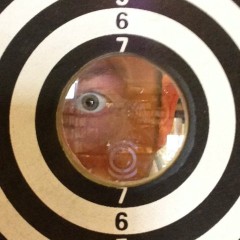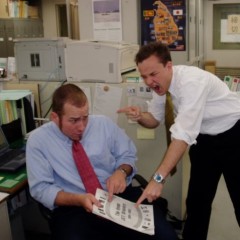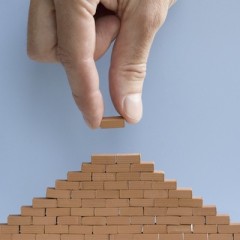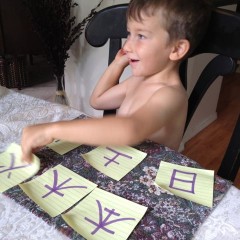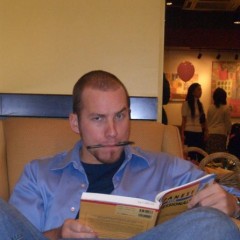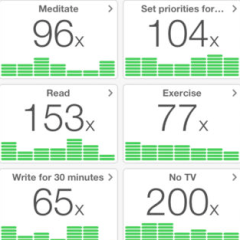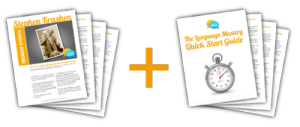12) Walk The Line Between Perseverance & Acceptance
Be present. Accept the moment as it is. Yah, great advice in theory, but doesn’t this lead to apathy and laziness? Absolutely not. That is just another psychological weapon wielded by your ego to keep it’s hold on you and prevent you from being truly alive in the moment…
13) Have Low Expectations
Before you mislabel me a pessimist, check out this awesome TED Talk by psychologist Barry Schwartz in which he posits why having high expectations (enabled by today’s unprecedented range of choices) has actually made us less happy.
14) Most Things Make No Difference; Focus Only on What Does
Like everyone else, I find myself feeling spread too thin at times, sacrificing things I want to do for things I feel I must do. But almost without exception, the tasks and projects that felt extremely urgent at the time (and led to sacrifices in sleep, nutrition, exercise, and time with family and friends) proved to be unimportant, and often meaningless, a short time later. While I still fall into the “urgency” trap now and again, before I stay up all night or skip a workout because something “has to be done today or the world will end”, I test the task or project at hand against the following criteria…
15) There is Enough Time to Do What Really Matters
Though I am fully aware it is a silly first world problem, one of the most common stressors in my life centers around the realization that I don’t/won’t have enough to acquire every last language, visit every last town on earth, try every last exotic dish, learn every last skill, read every last book, follow every last blog, listen to every last podcast, or watch every last documentary, movie, or TV series. Luckily, this anxiety can be quickly quelled by being fully present in the moment and being grateful for whatever I do happen to see, hear, smell, taste, touch, or experience. While you never know when you’ll exit this world, on any given day, at any given moment, there is enough time to do what matters: following one’s bliss and being truly alive. And while learning and experiencing new things is one avenue for me to my bliss, I try to remember that I needn’t read every book to feel this. Just a book.
16) There’s No Replacement for Motivation & Discipline
“Talent without discipline is like an octopus on roller skates. There’s plenty of movement, but you never know if it’s going to be forward, backwards, or sideways.” ~H. Jackson Brown, Jr. Just as the best book is worthless if it sits on the shelf, the best productivity tools matter not if you’re not motivated to use them. The key is motivation, and when it inevitably waivers, discipline to do the things...
17) Use Daily Routines, Rituals & Habits to Maximize Creative Output
Even more powerful than motivation and discipline (because both are finite resources) is the less fallible power of daily routines and rituals. The beautiful power of routine is a rather recent discovery for me as I’ve committed to writing as a profession instead of a mere hobby. Since I work on my own from home (all the while acting as a full-time “manny” for my 4-year-old nephew), I no longer have the confines or benefits of a traditional work place and all the routines that go with it. I must create them myself, and inspired by Mason Currey’s Daily Rituals: How Artists Work, I have done just that. Contrary to stifling my creativity, following my self-imposed routine has actually boosted my creative output and freed my heart and mind from the paradox of choice.
18) Perfectionism is the Enemy of Productivity & True Happiness
“Artists who seek perfection in everything are those who cannot attain it in anything.” ~Gustave Flaubert I am a recovering perfectionist. Unfortunately, they don’t have 12-step programs for kicking perfectionism, but there probably should be. If I am honest with myself, the foolish pursuit of “perfection” (which is usually unattainable, and almost always undefinable) has held me back from a more prolific...
19) Take Life “Bird by Bird” and “Brick by Brick”
It is all too easy to get intimidated (and depressed!) by the myriad steps required in big undertakings like learning a language or transforming one’s body. The key is to focus not on the distance between here and your final goal, but on just one—and only one—step at a time.
20) Learning How to Learn is Life’s Most Important Skill
This quote belongs to Tony Buzan, author of over a dozen books on mastering your memory and employing more effective learning strategies. Sadly, I didn’t discover his works until long after college where they would have saved me a great deal of frustration and study time. Oh well, better late than never. Here are a few of his key techniques that can help you in just about any endeavor, including language learning: Spaced...
21) There is a Huge Difference Between “Studying” and “Learning”
Studying something does not necessarily equate with “learning” it. Just because you finish a book doesn’t mean you’ve actually internalized its lessons and can apply them in your life. This is especially true for the domain of foreign languages where learners often mistake “studying a language” for “acquiring a language”. The two are very different things. You can spend your whole life studying Japanese, for example, and acquire very little.
22) Wisdom = Knowledge + Experience
We have—or at least think we have—all the answers when we’re young. This is especially true for the highly educated, but lightly lived. The belief system of an early twenty something is nice and neat because they have yet to encounter outliers that disprove their theories, endure soul-crushing loss, or live through high-stakes professional or romantic failure. But as we experience more of life’s ups and downs (which seem to hit for most of us in our late twenties to early thirties), our datasets gets larger, and we have the potential to draw a more accurate “best fit line” through what we’ve learned and experienced.
23) Measure What Matters; Ignore the Rest
Whether trying to learn a new language or transform your body, it is imperative that you set realistic goals and track your progress on a daily, weekly, monthly, and yearly basis. This can take the form of an accountability blog, posts on social media, using an app like Lift, or just periodically checking in with a friend trying to accomplish the same goals. But what you measure is important. Smartphones and quantified-self apps make it easier than ever to track just about anything you want, but this also makes it all too easy to capture too much data, leading to paralysis by analysis and stalled progress.



